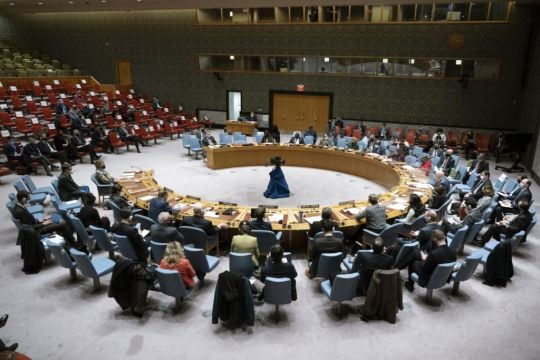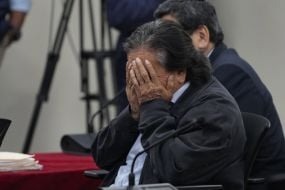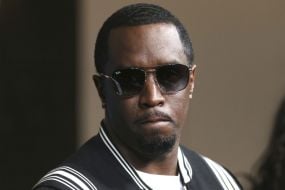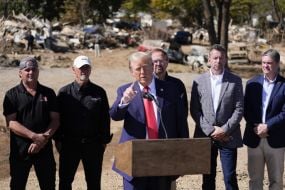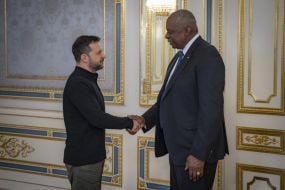World leaders have condemned Russian President Vladimir Putin as he heightened fears of war with legislation that would allow the deployment of troops to rebel-held regions of eastern Ukraine.
From a hastily convened meeting of the United Nations Security Council to capitals around the world, leaders condemned Mr Putin’s recognition of the two pro-Russia regions and his order to send troops there. They warned of global fallout from a conflict in Ukraine.

A vaguely worded decree signed by Mr Putin late on Monday did not say if Russian troops were on the move, and it cast his order as an effort to “maintain peace”. Legislators in the Kremlin-controlled parliament are likely to rubber-stamp legislation authorising the use of troops in the separatist regions, an area known as Donbas.
Ukrainian President Volodymyr Zelenskyy sought to project calm, telling the country in an address overnight: “We are not afraid of anyone or anything.”
The White House issued an executive order on Monday to prohibit US investment and trade in the separatist regions. Additional measures – probably sanctions – were to be announced on Tuesday.
Here is a look at the latest developments in the security crisis in eastern Europe:
– What is happening in eastern Ukraine?
Convoys of armoured vehicles were seen rolling across the separatist-controlled territories late on Monday. It was not immediately clear if they were Russian.
Russian officials have not yet acknowledged any troop deployments to the rebel east, but Vladislav Brig, a member of the separatist local council in Donetsk, told reporters that Russian troops had already moved in, taking up positions in the region’s north and west.

The legislation expected to quickly sail through both houses of Russia’s parliament on Tuesday envisages military ties, including the possible establishment of Russian military bases in the separatist regions.
Prime Minister Boris Johnson told MPs that Russian tanks were already in eastern Ukraine.
“Russian tanks and armoured personnel carriers” have been spotted in the eastern Ukraine regions recognised by Mr Putin, Mr Johnson said.
He said that amounts to “a renewed invasion” of Ukraine. Russia annexed Ukraine’s Crimean Peninsula in 2014 and has previously operated in eastern Ukraine.
– Is there still room for diplomacy?
With an estimated 150,000 Russian troops massed on three sides of Ukraine, the US warned on Friday that Mr Putin had already decided to invade. Still, President Joe Biden and Mr Putin tentatively agreed to a meeting brokered by French President Emmanuel Macron in a last-ditch effort to avoid war.
Kremlin spokesman Dmitri Peskov, though, said “it’s premature to talk about specific plans for a summit”.
Ukraine’s United Nations ambassador Sergiy Kyslytsya said during a Monday night Security Council meeting: “We are committed to a political diplomatic settlement and do not succumb to provocations.”
– Germany reassessing gas pipeline
Chancellor Olaf Scholz said Germany is reassessing certification of a controversial gas pipeline from Russia in response to Moscow’s actions in Ukraine.
“That will certainly take time, if I may say so,” Mr Scholz said as the West began punishing Moscow for its actions in Ukraine.
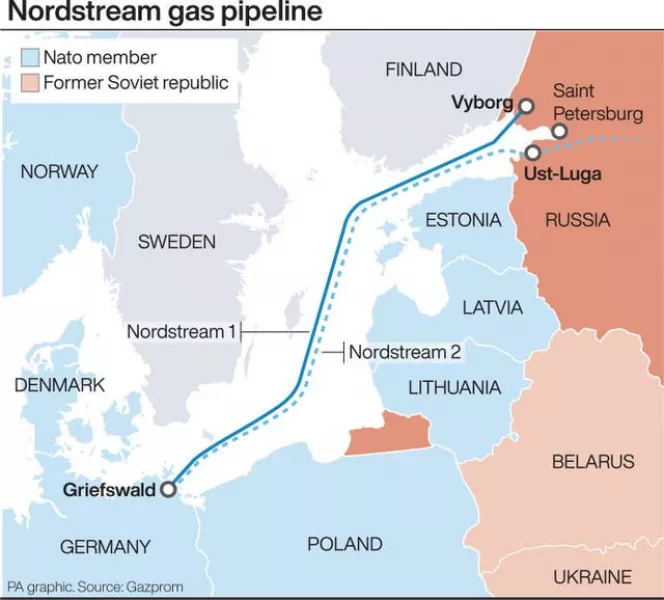
The decision is a significant move for the German government, which had long resisted pulling the plug on the Nord Stream 2 project despite pressure from the United States and some European countries to do so.
Washington has for years argued that building another pipeline bringing natural gas from Russia to Germany increases Europe’s reliance on Russian energy supplies.
– What is the EU doing?
Top European Union officials said the bloc is set to impose sanctions on several Russian officials and banks financing the Russian armed forces as part of moves to target Moscow’s access to EU capital and financial markets.
The actions, to be taken in the wake of Russia’s decision to recognise the independence of two separatist regions in south-east Ukraine and to deploy troops there, would “target those who were involved in the illegal decision”, an EU statement said.
The statement did not identify who the sanctioned Russians might be.
The EU sanctions would also “target trade from the two breakaway regions to and from the EU, to ensure that those responsible clearly feel the economic consequences of their illegal and aggressive actions”, European Commission president Ursula von der Leyen and European Council president Charles Michel said.
EU foreign ministers are meeting later on Tuesday in Paris to discuss the proposed measures.
The United Kingdom, while no longer part of the EU, is taking similar actions. Prime Minister Boris Johnson said his Government is slapping sanctions on five Russian banks and three wealthy individuals over Russia’s latest military moves on Ukraine.
Mr Johnson told MPs that sanctions would hit Rossiya Bank, IS Bank, General Bank, Promsvyazbank and the Black Sea Bank.
He said three Russian oligarchs with interests in energy and infrastructure – Gennady Timchenko, Boris Rotenberg and Igor Rotenberg – will have their assets frozen and be banned from travelling to the UK.
Mr Johnson accused Mr Putin of “establishing the pretext for a full-scale offensive” against Ukraine and said “further powerful sanctions” would follow, if that happened.
– What happened at the UN Security Council?
Ukraine’s UN ambassador demanded that Russia cancel its recognition of the independence of the separatist regions in the east, immediately withdraw its “occupation troops” and return to negotiations.
Sergiy Kyslytsya said during Monday night’s emergency meeting of the UN Security Council that Ukraine called the rare evening session to protest and condemn Mr Putin’s “illegal and illegitimate” decision to recognise the separatist-controlled regions.
Mr Kyslytsya said Ukraine’s internationally recognised borders “have been and will remain unchangeable regardless of any statements and actions by the Russian Federation”.
He said Mr Putin’s moves “may be considered” as Russia’s unilateral withdrawal from the Minsk Agreements, which were aimed at restoring peace to eastern Ukraine, and its disregard of the Normandy format comprising Russia, Ukraine, France and Germany which has tried to resolve the eight-year war in the east.
Linda Thomas-Greenfield, the US ambassador to the United Nations, dismissed “as nonsense” Mr Putin’s assertion that Russian troops would be in Donbas as peacekeepers, saying their presence is “clearly the basis for Russia’s attempt to create a pretext for a further invasion of Ukraine”.
Ms Thomas-Greenfield said the Russian president has presented the world with a choice and it “must not look away” because “history tells us that looking the other way in the face of such hostility will be a far more costly path”.
